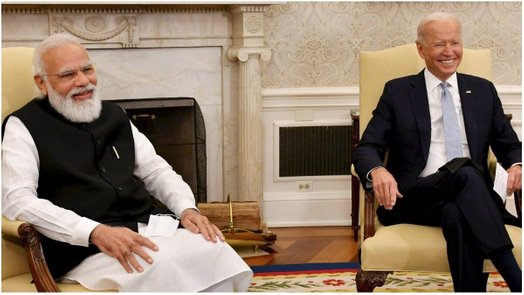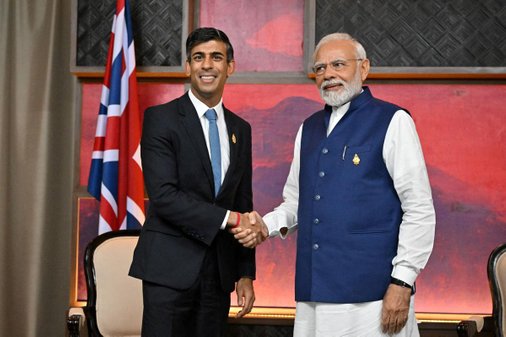SCOPE OF AVIATION






The Tata Group has recently made a significant move to revamp Air India’s fleet and revive the struggling carrier. In a landmark deal, the group has agreed to purchase a total of 470 aircraft from both Airbus and Boeing, making it the largest commercial aviation order in history. The Boeing order alone is valued at $34 billion, while the Airbus transaction is estimated to be around $35 billion. Additionally, the agreement with Boeing includes options for the purchase of 50 737 Max jets and 20 787s, worth an additional $12 billion.
As a result of this purchase, Air India’s hangars will soon be home to 250 Airbus aircraft, including 210 narrow body A320s and 40 wide body A350s. The airline will also have 220 Boeing jets, consisting of 190 737 Max planes, 20 787s, and 10 777Xs.
This order is significant for Air India, as it marks the airline’s first purchase in over 17 years and the first since the Tata Group’s takeover just over a year ago. To put the scale of this order into perspective, the previous largest order was placed by American Airlines in 2011, with a total of 460 aircraft ordered.
According to Air India, the first batch of 25 Boeing B737-800s and six Airbus A350-900s is expected to arrive in the second half of 2023. In the meantime, the airline has already started taking delivery of 11 leased B777 and 25 A320 aircraft, which will accelerate its fleet and network expansion plans.
During a recent video conference, N Chandrasekaran, the Chairman of Tata Sons, emphasized that the purchase of aircraft for Air India is not merely another business venture, but a national project. Chandrasekaran explained that the Tata Group is committed to transforming Air India into a world-class airline that prioritizes safety, on-time performance, the best of Indian hospitality, and a modern fleet.
He also noted that the order for narrow body aircraft from Airbus includes significant options for future expansion. The video conference was attended by Prime Minister Narendra Modi, French President Emmanuel Macron, and Tata Trust Chairman Ratan Tata.

US President Joe Biden:
The United States can & will lead the world in manufacturing.
Iam proud to announce today the purchase of over 200 American-made aircraft through a historic agreement between
Air India & Boeing.
This purchase will support over one million American jobs across 44 states, & many will not require a four-year college degree.
This announcement also reflects the strength of the U.S.-India economic partnership. Together with Prime Minister Modi, I look forward to deepening our partnership even further as we continue to confront shared global challenges—creating a more secure & prosperous future for all of our citizens.
French President Emmanuel Macron:
Air India-Airbus deal marks a new stage in India-France relationship. In a tweet, French President also thanked Prime Minister Narendra Modi for the confidence in France and French industry.


UK Prime Minister Rishi Sunak:
British Prime Minister Rishi Sunak has hailed the deal by Airbus & Rolls-Royce to supply new aircraft to Air India as a landmark moment for the country’s aerospace sector and reiterated his commitment to continue building ties with India.
Mr Sunak said that the deal demonstrates that sky is the limit for the UK’s thriving aerospace sector. The UK government said the pact will create highly skilled jobs in Wales and Derbyshire, eastern England, helping boost exports and the economy.
Currently, Air India operates a fleet of around 115 aircraft, but when including Vistara, AirAsia India, and Air India Express, the total number of planes in service is around 227, consisting of both narrow and wide-body Airbus & Boeing aircraft.


India’s civil aviation market is close to reaching pre-pandemic levels, with carriers scrambling to meet the surging demand, which has surprised market watchers. The number of flyers in 2022 increased by 47% to 123 million compared to 2021, according to data released by the Directorate General of Civil Aviation.
The Indian government is eager to revive or develop 100 unserved and underserved landing sites, such as airports, heliports, water aerodromes, & advanced landing grounds, by 2024 to extend air connectivity to previously disconnected areas.
Prime Minister Narendra Modi emphasized that the civil aviation sector is an integral part of India’s development & that strengthening it is a crucial aspect of the country’s national infrastructure strategy. The Prime Minister noted that the number of airports in India has increased from 74 to 147 in the past eight years, & India is on track to become the world’s third-largest civil aviation market in the near future.
If we look back at the history of aviation in India which dates back to 1911, when the first commercial flight took off from Allahabad & landed in Naini, covering a distance of six miles. The flight was operated by Henri Pequet, a French aviator, who was commissioned by the Indian Postal Department to transport mail from one place to another.
In 1932, J.R.D. Tata founded Tata Airlines, which later became Air India, the country’s national carrier. The airline’s first flight was between Karachi and Mumbai, covering a distance of 1,400 km. In the same year, the government established the Directorate General of Civil Aviation (DGCA), which regulates civil aviation in India.

During World War II, Indian aviation witnessed a significant boost as the British government established several airfields and training centers in the country. In 1946, the Airports Authority of India (AAI) was established to manage airports and air traffic in the country.
In recent years, the Indian aviation sector has witnessed significant growth, with the country becoming one of the fastest-growing aviation markets in the world. The sector has undergone significant reforms, with the government launching the Regional Connectivity Scheme (RCS) to promote air connectivity to remote & underserved regions of the country.
India has made significant progress in both aviation & space technology over the years. In aviation, India is now the world’s third-largest domestic aviation market, with over 100 million domestic passengers annually. The number of airports in India has also increased from 74 in 2014 to over 150 in 2022, improving connectivity & accessibility for millions of people. India’s aviation sector has also seen a surge in demand, with many domestic airlines expanding their fleets and introducing new routes.
In space technology, India has made great strides with the launch of numerous satellites and missions to the Moon and Mars. The Indian Space Research Organisation (ISRO) has successfully launched more than 100 satellites, including the Mars Orbiter Mission, which made India the first country to successfully reach Mars on its first attempt. In 2022, ISRO also announced its first manned mission, Gaganyaan, which is set to launch in 2024.
India has also demonstrated its space prowess by conducting anti-satellite tests & launching satellites for other countries. The country’s ambitious space program is expected to further develop its capabilities in areas such as satellite technology, remote sensing & space exploration.



School of Aeronautics imparting education since 1992 in the Field of Aviation, can rest assure you today we are not only witnessing but creating the History too.
If you are someone who has always been fascinated by the thrill of flying high up in the sky?
Do you dream of exploring new horizons & traveling to different parts of the world?
If yes, then a career in Aviation could be the perfect choice for you.
Aviation is a highly dynamic & exciting field that offers a wide range of opportunities for individuals who are passionate about aviation & have the right set of skills. The aviation industry is growing rapidly, & the demand for aviation professionals is at an all-time high.
If you are considering pursuing a career in Aviation, here are some reasons why you should choose this field:
Opportunities for Growth: The aviation industry is a highly diverse field that offers a multitude of career opportunities, ranging from pilots and air traffic controllers to engineers and maintenance technicians. As the aviation industry continues to grow, so do the career opportunities in this field. There is always room for growth and advancement in aviation, which makes it an exciting and rewarding career choice.
Hands-On Learning: Aviation programs offer a unique learning experience that is both challenging and exciting. You will have the opportunity to learn in a hands-on environment, working with real aircraft, engines, and other aviation equipment. This practical experience is invaluable, and it prepares you for the real-world challenges of the aviation industry.
Exciting Work Environment: The aviation industry offers an exciting work environment that is constantly changing and evolving. Whether you are a pilot flying to new destinations, an air traffic controller managing the flow of aircraft, or an engineer designing the latest aircraft technology, there is never a dull moment in aviation.
Competitive Salary: Aviation careers are highly sought-after, and they offer competitive salaries and benefits. Whether you are starting your career as a pilot or an air traffic controller, or you are an experienced aviation professional, you can expect to earn a good salary and enjoy a range of benefits.
If you are passionate about aviation, pursuing a career in this field can be highly rewarding. The aviation industry is growing rapidly, and there are plenty of opportunities for growth & advancement. So, Take the first step & Apply Now.
Indian government is promoting the development of Aerospace & Defense industries & is partnering with global players to set up manufacturing units in the country. India offers, a skilled workforce, lower labor costs, & favorable government policies. With the right investments & policies, India could become a major hub for Aviation manufacturing.

A career in Aviation offers high career prospects & growth opportunities in the future for students interested in studying, research & producing airplanes. The aviation sector has a variety of employment options regardless of educational background, certifications, or work experience. Additionally, anyone with a high school (PCB background for engineering) or above can work in the industry.
However, in order to work in the Aviation industry, candidates may enroll in one of the best Aviation courses College like School of Aeronautics:
We offer B.Tech Aeronautical Engineering, Aircraft Maintenence Engineering (AME) & Integrated Course of B.Tech Aeronautical Engineering +AME
B.Tech Aeronautical Engineering:
Aeronautical engineering is a branch of engineering that deals with the study, design, development, construction, testing, operation & maintenance of aircraft & spacecraft. It involves the application of scientific & engineering principles to solve practical problems in the aviation industry.Aeronautical engineers are responsible for designing and building aircraft, spacecraft, missiles, & other aerospace products.
The field of aeronautical engineering is divided into two major sub-disciplines:
(i) Aeronautical Engineering
(ii) Astronautical engineering
Aeronautical engineering deals with the design and development of aircraft that operate within the Earth’s atmosphere,
while astronautical engineering deals with the design and development of spacecraft that operate beyond the Earth’s atmosphere.
To become an Aeronautical engineer, one typically needs to earn a Bachelor’s degree in Aeronautical Engineering or a related field such as Aerospace Engineering. A Master’s degree or a Ph.D. may also be required for advanced positions. In addition, aeronautical engineers need to have a strong background in mathematics, physics , chemistry & computer software knowledge.
Aeronautical engineers work in various industries including aviation and aerospace, defense, government agencies, & research organizations. Some of the job roles in aeronautical engineering include aircraft design engineer, aerodynamics engineer, materials & structures engineer, systems engineer, & propulsion engineer.
The salary for aeronautical engineers varies depending on their job role, experience, & location. On average, a starting salary for an aeronautical engineer in India is around 4-7 lakhs per annum, & with experience, this can go up to 10-15 lakhs per annum or more. Overall, a career in aeronautical engineering can be rewarding for those interested in the aviation & aerospace industries.
Aircraft Maintenance Engineering (AME):
Aircraft Maintenance Engineering (AME) is a branch of engineering that deals with the maintenance, repair, & inspection of aircraft components & systems, including airframe, engines, electrical systems, & avionics. AME is an important aspect of aviation, ensuring that aircraft are maintained in a safe and airworthy condition.
AMEs are responsible for conducting scheduled maintenance checks, troubleshooting and diagnosing issues, & repairing or replacing components as needed. They are also responsible for conducting pre-flight inspections & ensuring that aircraft are ready for flight.
In order to become an AME, one must undergo specialized training & certification from an approved aviation training organization like School of Aeronautics. This involves both theoretical & practical training, with a focus on hands-on experience in maintenance & repair techniques.
Upon completion of the training, an individual must pass an examination conducted by the DGCA to obtain a license to practice as an AME.
The demand for AMEs is expected to grow in the coming years as the aviation industry continues to expand. This presents a good opportunity for individuals interested in pursuing a career in aviation maintenance & repair.
Integrated courses of B.Tech Aeronautical Engineering & Aircraft Maintenance Engineering (AME):
Integrated courses of B.Tech Aeronautical Engineering & Aircraft Maintenance Engineering (AME) are designed to provide students with knowledge & skills in both aeronautical engineering & aircraft maintenance engineering.
The course covers subjects such as aviation maintenance practices, aircraft materials and hardware, aircraft electrical and electronics systems, aircraft power plants, aircraft structures and systems, & aviation laws and regulations. Students also receive hands-on training in aircraft maintenance, repair, & overhaul techniques.
Upon completion of the program, graduates can find employment opportunities in various areas of the aviation industry, such as airlines, aircraft maintenance, manufacturing, research & development, & government agencies. They can also pursue higher studies in related fields such as aerospace engineering or aviation management.
Cabin Crew & Hospitality Certification:
Cabin crew & Hospitality certification courses are designed to equip students with the knowledge & skills required to pursue a career in the aviation industry. These courses typically cover a range of topics such as aviation safety and security, airline operations, customer service, communication skills, food and beverage service, and emergency procedures.
The curriculum of cabin crew & hospitality management courses is designed to provide students with a comprehensive understanding of the aviation industry & its related fields. In addition to classroom lectures, students also undergo practical training in areas such as mock drills, first aid, & grooming.
After completing a cabin crew and hospitality management certification course, graduates can pursue a career as cabin crew members, ground staff, customer service executives, or airport managers. With experience and further training, they can also move on to higher roles such as airline supervisors, in-flight service managers, & airport operations managers.
The duration of cabin crew & hospitality certification courses range from 6 months to 1 year & it will training on our own Fokker F-27 Aircraft.
Enrolling in an aviation course will provide you with the necessary knowledge & skills to excel in this field. Whether you want to be a pilot, aerospace engineer, or cabin crew member, there are a plethora of opportunities waiting for you in the aviation sector.
Moreover, the aviation industry is one of the fastest-growing industries in the world. With the rise of air travel and the increasing demand for goods & services, the aviation industry is constantly evolving & expanding. This means that there will always be a need for skilled professionals in this field.
So, if you are looking for a challenging & exciting career with endless possibilities, then joining an aviation course is the perfect choice for you. Not only will you learn about airplanes & space technology, but you will also be part of a dynamic & diverse community that is passionate about aviation.
APPLY FOR ADMISSION
This is not an admission form; this is your passport to a great professional career. We assure you that the decision to choose SOA as a partner to the journey of wisdom will prove to be defining. SOA ensures you an admission process which is away from any discrimination or bias.
